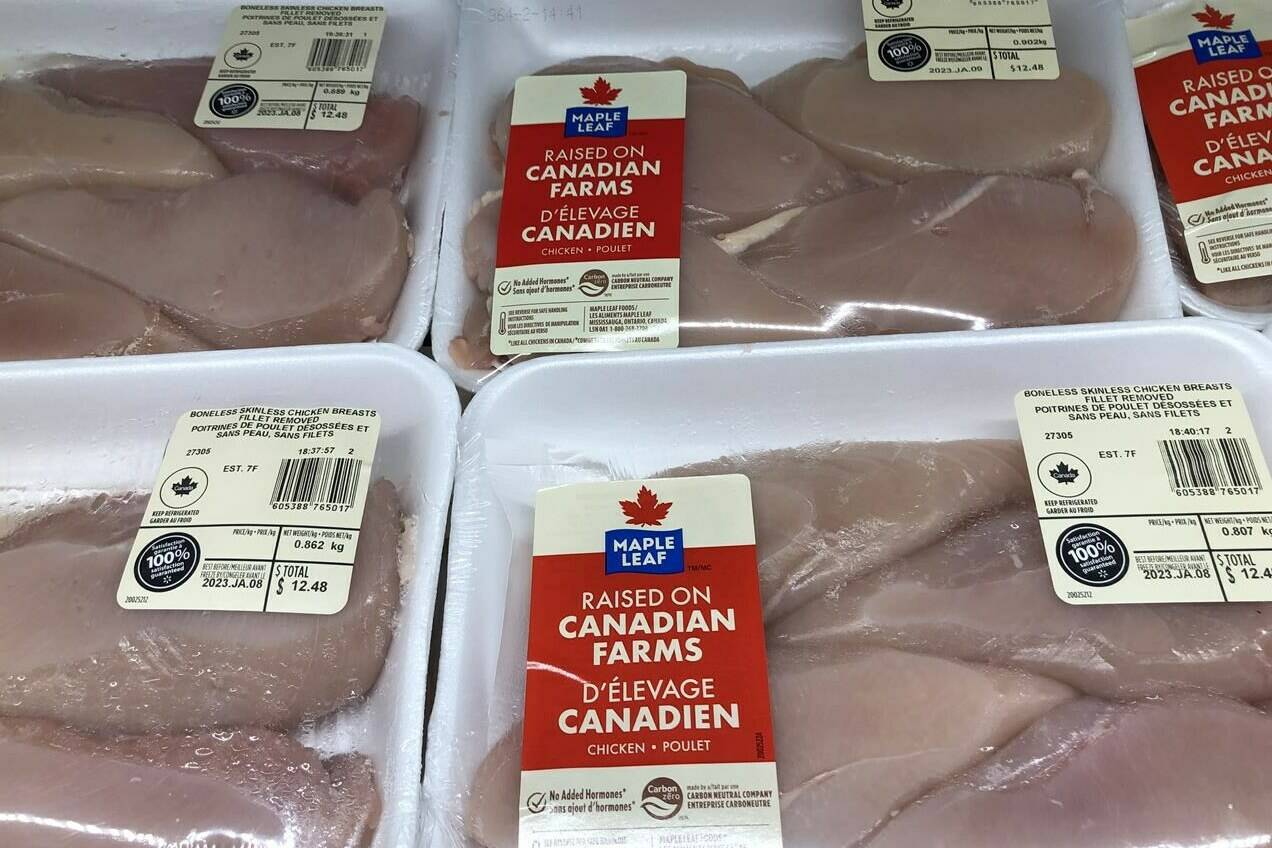Widespread inflation has led to some eye-popping meat prices, but dietitians say there are budget-friendly ways to get enough protein.
Saving money on these essential building blocks could involve both considering a wider variety of sources, and being more strategic when sticking to old favourites, but either way it’s key that everyone gets enough, said registered dietitian Desiree Nielsen.
“With everyone still getting sick all of the time, it is really important that you get adequate protein in your diet.”
Protein is responsible for the growth and repair of all human cells and it is critical to the proper functioning of the immune system, she said.
How much protein you need depends both on weight and physical activity, but the general minimum recommendation is about 0.8 grams per kilogram of weight, so for a 70 kg person it would be 56 grams of protein per day.
For the most part Canadians get more than enough, and could even potentially cut back, said Nielsen, but sharply rising prices for some of the most common sources of protein is making it more difficult.
Consumers have certainly noticed the changing prices, with a soon-to-be released survey of 3,126 Canadians by the Dalhousie University Agri-food Analytics Lab finding that people believe that meats have seen the largest price increases among food categories in the last three months of 2022.
The picture is more complicated though, as everything from extreme weather to consumer demand is creating increased volatility across the meat counter, and requiring more careful watching of which options are trending up and down.
Meat prices were overall down slightly in December from November, while from a year ago only pork is down while poultry has seen a jump.
Taking a further step back and looking at what’s happened since just before the start of the COVID-19 pandemic, shows some of the range of price changes that still require some digesting, with bacon up about 21 per cent as of November, while stewing beef is up 38 per cent, and eggs up about 33 per cent.
Pork rib cuts meanwhile, went from $8.89 a kilogram in January 2020, to $13.32 in August 2021 for a 50 per cent jump, while at last count they were on offer for $8.85.
So keeping a close eye on different cuts and types of meat is important, but if you’re really looking to cut back on spending then it pays to venture outside of animal protein, said Nielsen.
“From an economical standpoint, and also health standpoint, getting more plant proteins on your plate, whether you simply extend your animal protein, or if you bring in two to three meatless meals a week, will absolutely have an effect on your bottom line.”
By extend your protein Nielsen means mixing in both plant and animal protein into a meal, so maybe going half ground beef, half lentils in a bolognaise sauce.
Dried lentils, which have seen a 12 per cent increase over the close to three years, work out to about 1.4 cents per gram of protein, while ground beef, already the cheapest cut of cow, comes in at 5.4 cents.
Chicken breasts, which went from about $11.91 per kg to a high of $15.94 last July, averaged $13.77 in November for about six cents per gram of protein, while the Loblaw premium chicken breasts that caused a stir earlier this month rang in at double that price.
Tofu steaks, coming in at about $2.80 for a 350g package, will run you just under five cents per gram of protein, while an actual beef top sirloin steak at $17.55 per kg will cost over eight cents, and can easily run much higher.
For those just exploring alternatives to meat for the first time, registered dietitian Evita Basilio recommends getting creative with spices.
“Find recipes for soups, stews, curries, or dolls. So those are a good way to like you’re still getting your amazing flavour profile. You maybe want to still have a couple of meat pieces in there so you don’t feel like you’re totally transitioning and missing out.”
For those shopping for animal protein, she recommends aiming for cheaper cuts, and given the volatility of prices, to have a plan in mind with flyers pre-scanned before getting to the store.
“Go in with a game plan so that you don’t get that sticker shock. And if a price is beyond what you expected, then just walk away and find a more affordable substitute.”
Frozen and canned options are generally cheaper and have the same nutritional value, said Basilio, though breading or other add-ons can make it less healthy.
Processed meats like Spam or wieners can be a lower-cost part of a healthy diet, but they tend to be high in sodium and nitrites, so should be eaten less often, said Basilio.
Canned tuna, which has nudged up about one per cent in almost three years, remains a good deal, running at under four cents a gram of protein.
Shoppers shouldn’t forget the nuts and seeds category, said Nielsen, who recommends options like sunflower or pumpkin as much cheaper and higher in protein than many realize.
Overall she recommends keeping an open mind to the wide variety of options and that it’s included in every meal.
“A little bit of concentrated protein at breakfast, lunch and dinner that helps us to feel more full and satisfied, and also helps our blood sugar keep at an even keel so that we have more stable energy levels throughout the day. And I don’t know any one person who would say they don’t want that.”
—Ian Bickis, The Canadian Press

